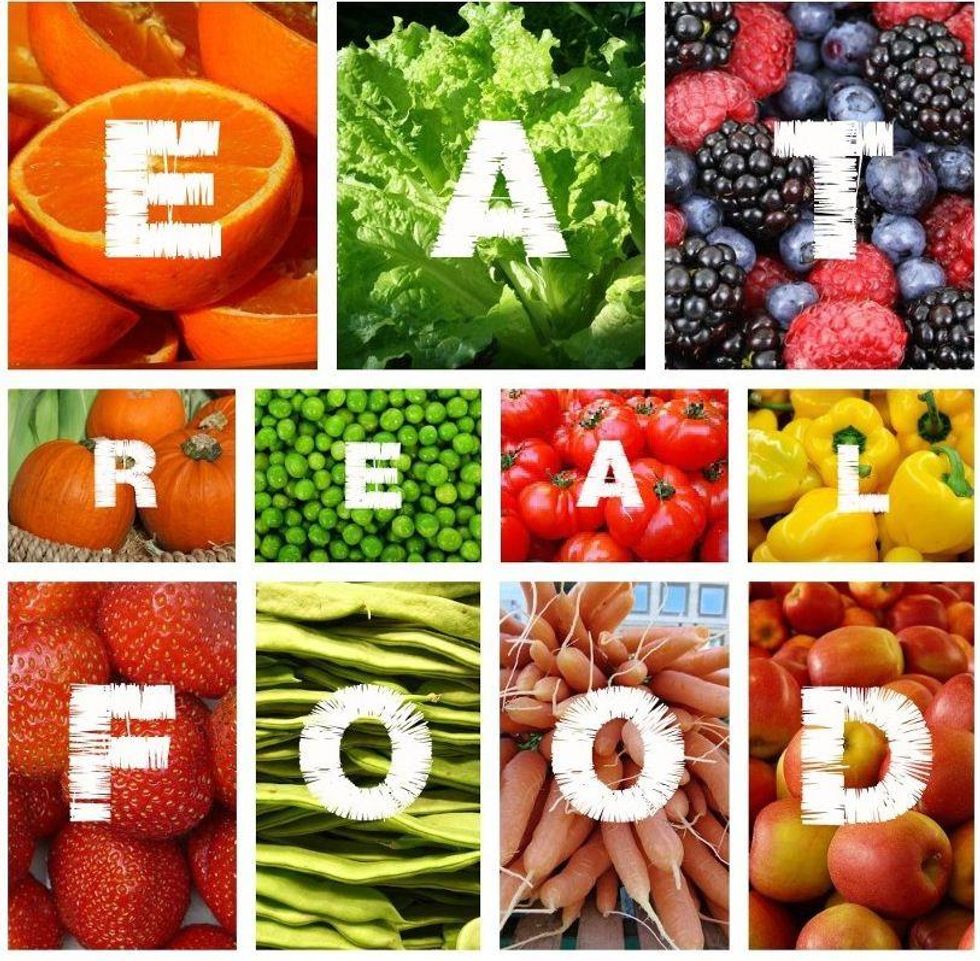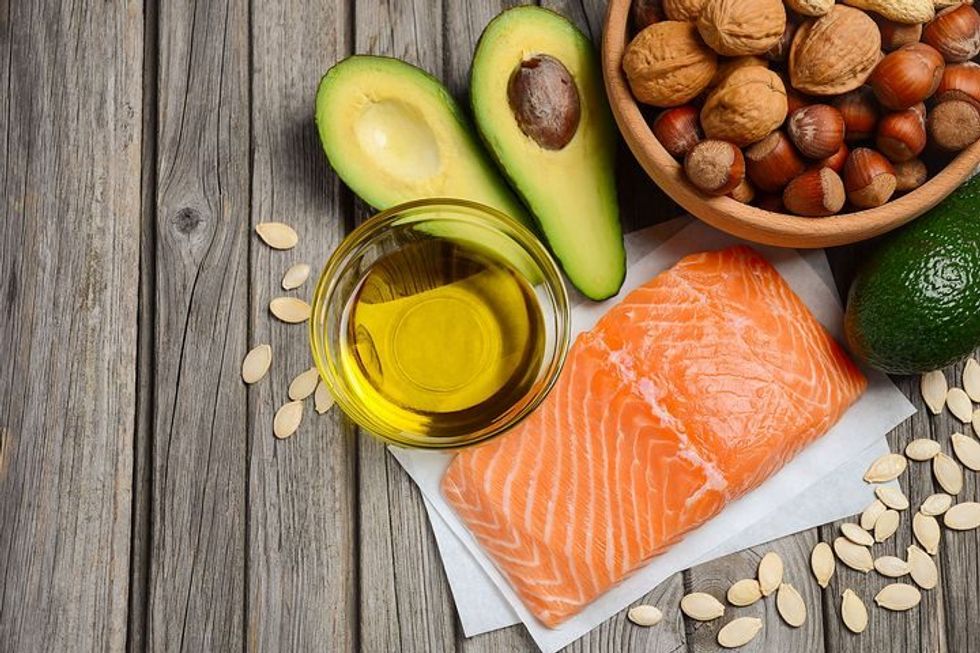For the past three years, I have been up and down with what it means to be healthy or how to "look healthy." I went through periods of working out a lot and eating strictly clean, to still working out but eating not so cleans foods, to taking supplements to give me the nutrients that I have been missing. I am always looking up ways to be healthier or ways to lose weight fast. I have become so obsessed with being healthy yet, I still am not as healthy as I could be. I am no doctor or nutritionist but I do have some knowledge about basic health, thanks to my job at GNC. Here is a list of basics of being healthy.
1. Exercise
WOW. What a shocker that this one made the list! Exercise is not top one on being healthy but it is definitely number two. You need exercise to be healthy. You have to get up and get moving for oxygen and your blood to flow through your body like it needs to. Sitting around all of your life with little to no exercise put you at such a higher risk for many health issues and diseases. You do not have to be a bodybuilder or run ten miles a day to be considered healthy. Just get up and go for a long walk or start doing at home exercises to get your heart rate up.
2. Eating Clean
Clean eating does not mean you have to eat just fruits and veggies. There are so much more foods out there that are considered clean and healthy for you. Yes, you do need to get your daily portions of fruits and veggies a day but you can also have other foods that if you're not a huge vegetable fan can enjoy. When eating clean you want to eat foods with as little ingredients as possible. So, put down the Doritos, or make a fire with them. Depending on if you're an active person or not your portion sizes for the food groups that you need daily vary. If you're a normal working adult you need about 2-3 servings of fruit and 3-4 servings of veggies a day. You'd be surprised the ways that you can consume those servings quickly in this generation. You can buy a juice at a grocery store with the recommended daily serving of fruit and vegetables and be set for the day. Just pay attention to the amounts of sugar that are in them or if there is any sugar added.
Check out the link below to see how many servings of the different food groups that you need daily.
https://health.gov/dietaryguidelines/dga2000/docum...
3. Multivitamins
Some people do not believe in taking multivitamins or supplements in general but honestly, multivitamins are pretty important in my opinion. Multivitamins fill all the nutritional gaps that you are not getting in your diet, besides protein. About 90 percent of Americans do not reach their daily need of nutrients through diet alone. That's where multivitamins come in and save the day... and your body. Multivitamins help with aging, giving you nutrients, energy production, getting toxins out of your body, etc. You can also get multivitamins tailored to more specific needs. Like women's one daily multi or energy, or for beauty. Just make sure to read labels and check all the ingredients. Always go for natural vitamins and supplements.
4. Probiotics
In order to be healthy, you need a happy stomach as well. Probiotics help keep the good bacteria in your stomach balanced. It helps with immune health, keeping your digestive system healthy, and can reduce bloating and discomfort. So unless you're eating massive amounts of yogurt or kefir a day you're not getting enough of the daily recommended amounts of probiotics.
5. Omega-3
Oh no... not fats! Yes, fats. Omega-3's are essential fatty acids that your body needs. It helps with your eyes, brain, heart, skin, and even digestive health. The best way to get your daily need of omegas is by taking fish oil. There are three main types of omega-3; EPA, DHA, and ALA. EPA and DHA are going to be your omegas from fish, mainly cold water fish. ALA is the vegetarian/vegan omega-3 (depending on brand) that is from flax seed and not fish. Fish Oil, just like multivitamins can come in many forms and amounts. For example, you can get liquid, chews, powder, pills, etc... with different milligrams. Getting your daily omega-3's is only going to help keep up with your health and your joints will thank you as well.
6. Protein
Our bodies rely so much on protein than we think. About eighteen percent of your body is protein. Protein helps with growth, repair, regulation, and maintenance. Protein helps with growth by creating new tissue. It helps to build muscle and strength and really helps with development during childhood and pregnancy. Protein also helps to regulate most body processes such as the production of hormones. Also, protein helps with repairing muscle after intense workouts or just exercise in general. There are so many ways to get protein. Meat, plant-based protein, veggies, or protein shakes. Yet again, make sure the protein shakes or powder are natural and not full of added sugar or ingredients that are harmful to you.
7. Sleep
Last but definitely not least is sleep. Sleep is very important to be healthy. It helps your body relax, restore, and rejuvenate from the wear and tear that has happened to it during the day. It also helps with growing muscle and repairing tissue like protein does. Make sure to get enough to sleep to help your mind and body to be or stay healthy.


























